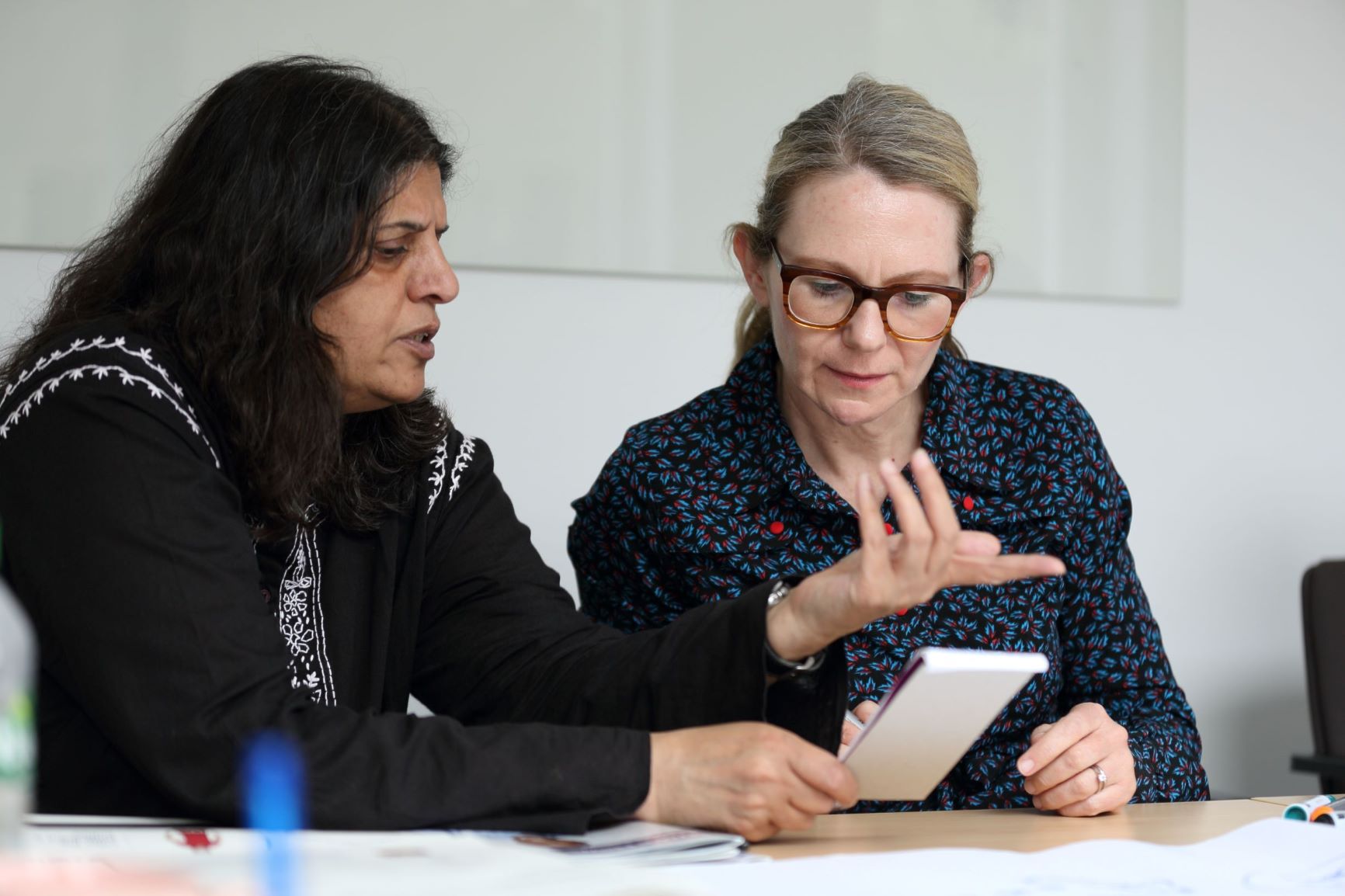Research involvement is about equal collaborations between people affected by stroke and research teams, working together to make decisions that shape how research is done.
Your lived experience can help to make sure that projects reflect the real needs and experiences of people affected by stroke, creating applied real world benefits that support people affected by stroke.
People affected by stroke are experts in what it is like to experience and live with stroke. We think that it's vital that people with these experiences are involved in stroke research to make sure this is relevant and important to those it aims to benefit.
Being involved in research is different from being a research participant, as you are not providing information for research to use. Instead, you are a partner in the research process - you're involved in making decisions that affect research, and you can influence and change what the research becomes.
Public involvement (is) research being carried out ‘with’ or ‘by’ members of the public rather than ‘to’, ‘about’ or ‘for’ them. It is an active partnership between patients, carers and members of the public with researchers that influences and shapes research.
National Institute for Health and Care Research
Involvement can mean taking part in many different ways, from one-off to throughout a project, from meetings and interactive workshops to arts and creative collaborations.
You might be working together to shape the questions that inform researchers' projects, to design a new device, resource or information. You might even be supported to learn how to do aspects of research yourself. There are lots of ways to get involved across preferences and time commitments.
You can find out more about taking part in involvement on the National Institute for Health and Care Research website, which includes useful resources, guides and examples.

Join Stroke Voices in Research
Stroke Voices in Research are a group of people with personal experience of stroke who sign up to shape our work and research projects across the United Kingdom.
These can all look different, but usually involve coming together in groups of 5 - 15 people around chances to:
- Help decide what research we fund at the Stroke Association.
- Have a say in the future direction of our research funding.
- Work with researchers as they develop and carry out their projects.
Members are supported by our Research Involvement Lead to understand if opportunities are right for them and to take part. We also run regular member meet-ups and training.
How do I become a member?
To be a member, you should have personal experience of stroke as a stroke survivor, carer or family member.
- You don’t need any experience in science, medicine or research. The reason for involvement is to compliment the research skills teams already have with your personal experience and expertise.
- There is no minimum time commitment. How much involvement you have and which opportunities you choose to sign up for is completely up to you.
- You will be supported to take part by our Research Involvement Lead, who is there to answer your questions and make sure the group reflects your needs and preferences.
Get Involved in Stroke Voices in Research
You can find more information in our Stroke Voices in Research Guide. If you have any questions please contact our Research Involvement Lead, Dan Taylor at daniel.taylor@stroke.org.uk.
Please complete this sign-up form to join Stroke Voices in Research. You will need to return it to our Research Involvement Lead, Dan Taylor at daniel.taylor@stroke.org.uk.
After stroke it’s very common for you to lose your self-confidence and self-worth. My way to get this back was to try and pass on my experience of stroke (good and bad) to doctors, nurses, therapists and academics, to try and improve their work with other stroke patients.
To be a voice for stroke can place you in a unique and privileged position supported by those who respect your acquired knowledge by experience of stroke.
Brin, Stroke Survivor
